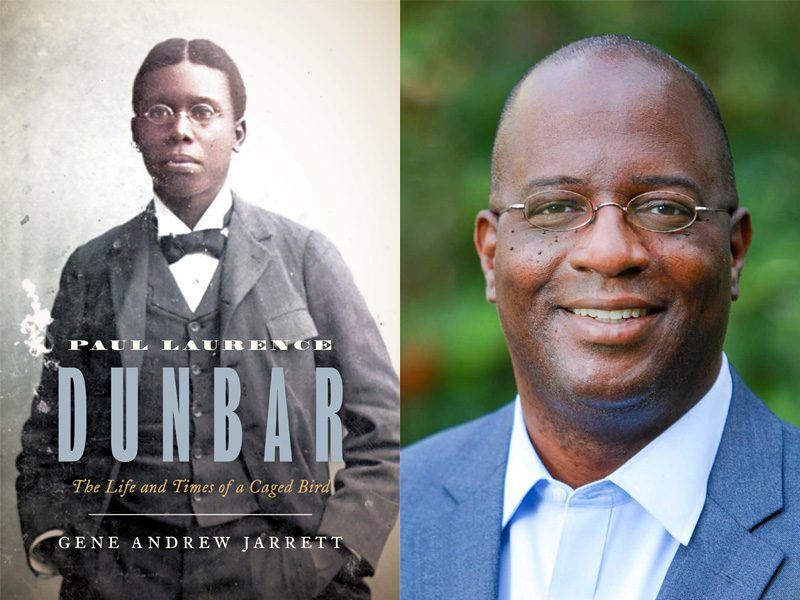Gene Andrew Jarrett is Dean of the Faculty and William S. Tod Professor of English. His book “Paul Laurence Dunbar: The Life and Times of a Caged Bird,” was published in June 2022 by Princeton University Press.
How did you get the idea for this project?
Dunbar has fascinated me for most of my life, particularly the period when I was a serious reader of literature. During my junior year at Princeton University, I came across Dunbar’s curious first novel, “The Uncalled” (1898), which, I discovered, belongs to a curious genre of African American literature that ironically avoids explicit references to race or to African American life. After further studying and teaching Dunbar’s oeuvre, I devoted substantial sections of the first two books I wrote, “Deans and Truants” (2007) and “Representing the Race” (2011), to examining Dunbar’s writings and his perspectives on race, literature, culture, and politics. My deep familiarity with Dunbar, but also my desire to flesh out the intricacies of his life, literature, and times, inspired me to write a definitive biography.
How has your project developed or changed throughout the research and writing process?
The challenges included documenting early on in the biography the lives of Dunbar’s parents, Joshua and Matilda, who were slaves without a full literary and historical record, since neither was a prolific or published author. A second issue included interweaving the various strands of his life–literary, intellectual, personal, professional, societal, cultural, political–into a biographical narrative that preserved the logic of chronology, coincidence, and causation between and among events. I hope I was able to illustrate his life and literature comprehensibly while successfully overcoming these issues of biographical methodology and narration.
What questions for future investigation has the project sparked?
Fans and scholars of Dunbar today are likely aware of the biographical storylines of his literary uses of dialect and the domestic turbulence of his marriage, but in my biography I provide more details and synthesis than ever before. In addition, Dunbar is now known for his personal attachment to certain famous contemporaries, ranging from black leaders, such as the orator Frederick Douglass and the educator Booker T. Washington, to white celebrities, such as aviator Orville Wright and president Theodore Roosevelt. My book reveals the confidentiality and strength of these relationships, confirming the recognition and embrace of Dunbar by some of America’s greatest leaders at the turn of the twentieth century. I hope that my biography enables future research into these personal and intellectual connections; into the circumstances under which he wrote literature; and into the forms and themes of the literature itself.
Why should people read this book?
People from many walks of life may come to realize how much Dunbar was a prodigy, had a crucial impact on his times, and inspired people even after he died on February 9, 1906, at the young age of 33. The topics of his life, literature, and times will resonate especially among those who reside today in his hometown of Dayton, Ohio, where several museums and libraries have already been dedicated to preserving his works and artifacts. Elsewhere across the country, these topics should also excite experts, students, and fans of Dunbar, while piquing the interest of those who encounter him for the first time. I hope that the upcoming anniversary enables in due course a thoughtful discussion of the full complexity of his life and times, but also a proper appreciation of his sophisticated efforts to thrive and lead as a writer in America.
Learn more about other publications by Princeton University faculty in the humanities by exploring our Faculty Bookshelf.
















